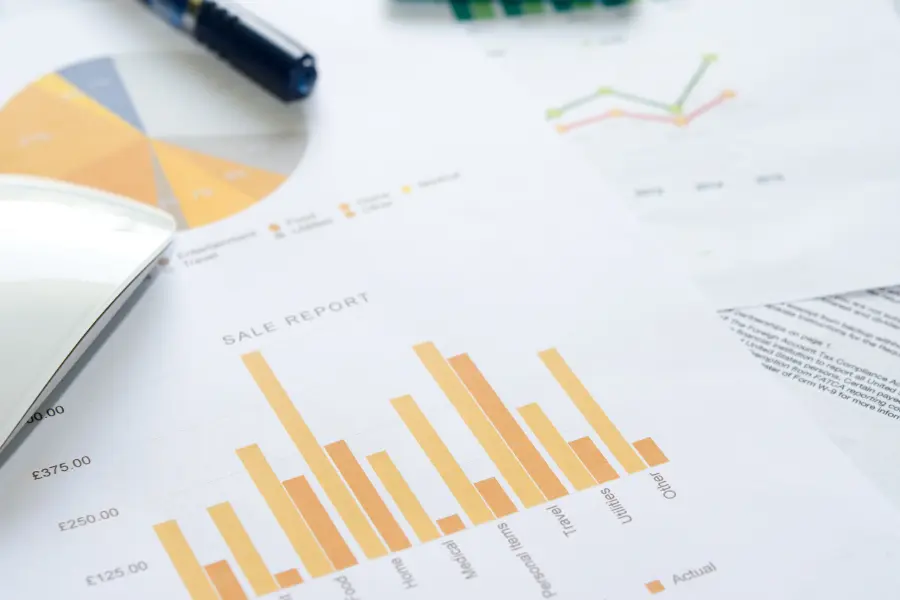Latest Trends in Data Analysis and How to Prepare for Them
In today's data-driven world, the landscape of data analysis continues to evolve rapidly, driven by technological advancements and increasing demands for insights. Staying abreast of the latest trends in data analysis is crucial for professionals looking to leverage data effectively. Here, we explore some of the current trends and how individuals and organisations can prepare to harness their potential.

Artificial Intelligence and Machine Learning Integration
Artificial Intelligence (AI) and Machine Learning (ML) are revolutionising data analysis by automating processes, predicting outcomes, and uncovering complex patterns. Organisations are increasingly adopting AI and ML to enhance decision-making and efficiency. Professionals aspiring to excel in data analysis should familiarise themselves with AI algorithms, understand their applications, and develop skills in programming languages like Python and R.
Augmented Analytics
Augmented Analytics blends AI and ML with analytics tools to automate data preparation, insight discovery, and sharing. It enables business users to access and interpret data without deep technical expertise, democratising data-driven insights across organisations. To prepare for this trend, professionals should focus on mastering tools that offer augmented analytics capabilities and enhancing their data visualisation skills.
Data Privacy and Ethics
With growing concerns over data privacy and the ethical implications of data use, regulatory frameworks like GDPR and CCPA are shaping how data is collected, stored, and analysed. Data analysts must prioritise ethical considerations and stay updated on regulatory changes. Developing expertise in data anonymization techniques and understanding legal frameworks will be essential for compliance and building trust.
Edge Computing
Edge Computing involves processing data near the source where it is generated rather than relying on centralised data centres. This trend is gaining traction as it reduces latency, enhances real-time analysis capabilities, and supports IoT devices. Professionals should anticipate the need to optimise data analysis techniques for edge environments and acquire skills in distributed computing and data management.
Data Democratisation
Data Democratisation aims to make data accessible to a broader audience within an organisation, empowering employees at all levels to make informed decisions. This trend emphasises self-service analytics tools, user-friendly dashboards, and training programs to enhance data literacy across teams. Professionals should advocate for a data-driven culture, promote data literacy initiatives, and refine their communication skills to effectively convey insights to diverse stakeholders.
Preparing for the Future
To thrive in the evolving field of data analysis, professionals should adopt a proactive approach to learning and skill development:
- Continuous Learning: Stay updated on emerging technologies, trends, and best practices through courses, workshops, and industry publications.
- Technical Skills: Develop proficiency in statistical analysis, data visualisation tools (like Tableau or Power BI), programming languages (such as SQL, Python, or R), and cloud platforms (like AWS or Azure).
- Business Acumen: Understand industry-specific challenges and objectives to effectively translate data insights into actionable strategies.
- Collaboration: Foster collaboration across departments to ensure alignment between data analysis efforts and organisational goals.
The future of data analysis is dynamic and promising, driven by innovation and the increasing integration of advanced technologies. By embracing these trends and continuously refining their skills, data professionals can position themselves as indispensable assets in their organisations' journey toward data-driven decision-making and innovation.
Active Events
3 Must Have Projects On your CV to Get into Data Analysis
Date: Feburary 25, 2025 | 7:00 PM(IST)
7:00 PM(IST) - 8:10 PM(IST)
2753 people registered
Transition from Non-Data Science to Data Science Roles
Date: Feburary 27, 2025 | 7:00 PM (IST)
7:00 PM (IST) - 8:10 PM (IST)
2753 people have registered
Bootcamps
Data Analyst Bootcamp
- Duration:8 weeks
- Start Date:October 5, 2024
Data Science Bootcamp
- Duration:8 weeks
- Start Date:October 5, 2024
